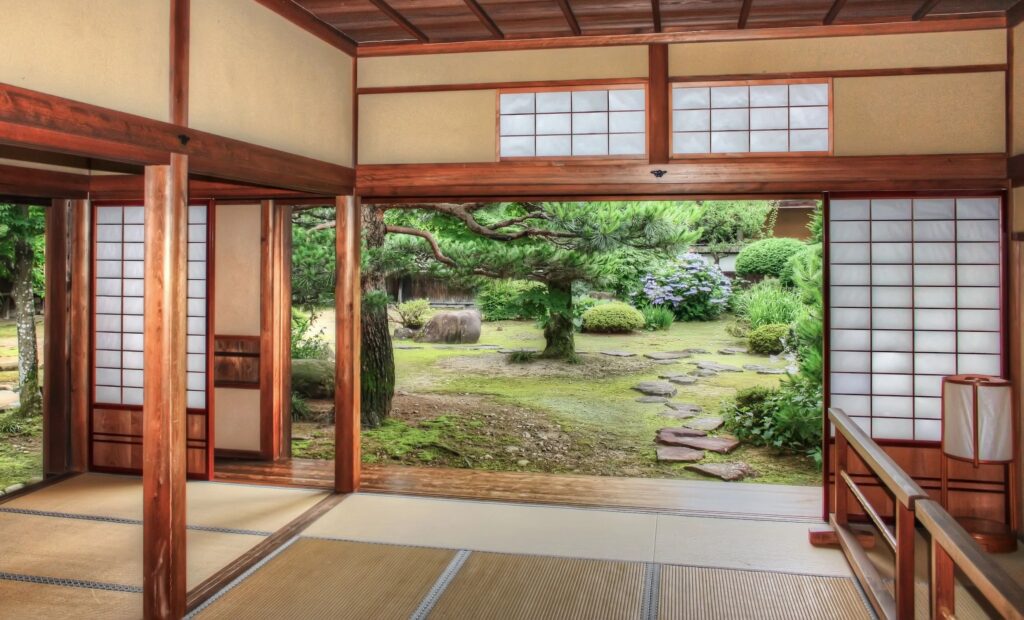One of Japan’s distinctive features is its ability to provide free housing for its citizens, a phenomenon that is probably unparalleled anywhere in the world.

Against the backdrop of Japan’s ageing population, a trend has emerged whereby the majority of the population is choosing to move to larger cities and more modern, compact housing. As a direct result of this dynamic, traditional housing has been abandoned and some localities have become ghost towns due to a lack of potential buyers. These abandoned dwellings are located in rural areas of Japan, and some are in such a poor state of repair that those who wish to live there will have to undertake restoration work.
Most young Japanese want to avoid the sprawling old rural houses of their country, which has led to a clear rejection of the idea of choosing an akiya. This situation has prompted the government to take a leading role in promoting these houses, with the aim of making them habitable at last. Through the Akiya Bank Program, it has attempted to reverse the population decline in rural areas by offering these houses at heavily discounted prices to attract potential buyers. However, this strategy has not worked as planned, leaving these communities on the brink of extinction.
One of the main reasons why few people opt for Akiya Bank grants is that there is no source of employment in uninhabited towns, so those who do move there would have to travel to areas far from their homes to earn money. It should be noted, however, that this quandary has not yet been addressed as part of the incentives to bring these abandoned houses back to life and repopulate the localities concerned. Perhaps the success of the scheme lies in exploiting the potential inherent in these circumstances, or in trying to offer them to a potential client as a second home.
Today, not all of these houses are located in completely abandoned areas: more and more akiyas can be found in Japan’s urban areas, although the majority of them are located in the country’s cities and outlying regions. According to the Ministry of the Interior, there were at least 8 million akiyas in Japan in 2013, representing about 13% of the country’s total housing stock, and projections indicate that this figure could rise to 30% by 2030, a staggering figure that explains the Japanese government’s concern in this regard.
Strict conditions for acquiring an akiya
Although there’s a lot of talk about getting an akiya for free, it’s important to look at the small print of the offer, because as well as having to repair and renovate the house, you may have to pay administration fees or taxes when you purchase it. It’s not all as simple as it sounds: anyone offered a free home may think it’s a good idea to accept. To be eligible for the official Japanese government-sponsored scheme, a number of strict conditions must be met:
Firstly, the family members who will occupy the accommodation must not be older than 43. This is because most of these houses are in their current state due to the death of their owners or their abandonment in favour of a retirement home. In addition, the students in the family must be over 18 years of age and live in the akiya full time, which excludes the possibility of using it as a seasonal residence. The aim is to encourage the creation of strong communities in these areas.
It is important to point out that the availability of an akiya does not discriminate between Japanese citizens and foreigners. However, immigrants must have a permanent resident visa, which is not easy to obtain in Japan. They must also be skilled workers who have entered the country with a job offer and have been in Japan for at least one year.
Another essential requirement for foreign applicants is to obtain a Certificate of Eligibility (COE). This document certifies that they have the necessary resources to support themselves, either through their employment or as the spouse or parent of a Japanese resident.
It is therefore quite difficult to meet all the requirements of the official program, but there are hundreds of thousands of akiyas and houses sold at auction that do not require any special conditions. At Tu Casa en Japón, we help our clients find the home that best suits their needs and desires, without any legal requirements.
